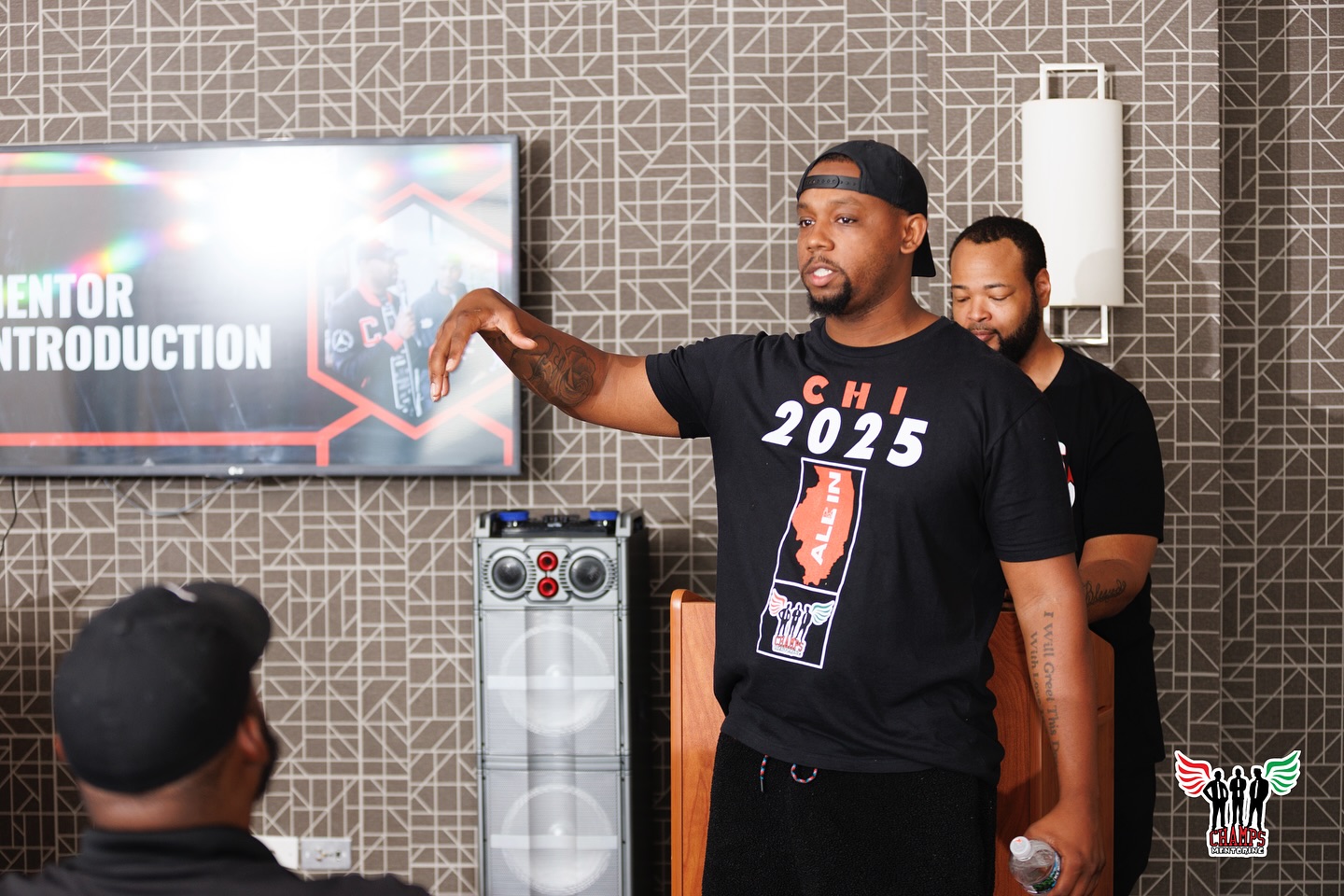The young men in Aaron Williams’ mentorship group know they can count on him to show up. Week after week. Conversation after conversation.
As a mental health director at a Chicago-based nonprofit dedicated to mentoring young men, Williams, MA ’24, knows the most powerful tool he brings isn’t his credentials — it’s his presence.
“Many of the men I’ve worked with are dealing with trauma but don’t have the tools or safe spaces to process it,” he said. “That’s where mentorship and therapy intersect. We’re not just treating symptoms — we’re modeling resilience.”
For nearly a decade, Williams has shaped young men into leaders — instilling resilience, self-awareness, and a strong sense of responsibility to their communities. At CHAMPS Male Mentoring (Culturally Helping and Making Positive Success), he helps participants grow through education, empowerment, and exposure, guiding them to see new possibilities for their futures.
Shaped by years as a Chicago police officer and deepened by his role as a father and mentor, Williams describes his work at CHAMPS as nothing short of transformative.
“It’s taught me the power of consistent presence, and how mentorship can change the trajectory of a someone’s life,” he said.
And his community-focused approach, Williams added, was further strengthened by his experience and training at Adler University — completing the Master of Arts in Couple and Family Therapy program in 2024.
“I didn’t just want to learn how to be a therapist; I wanted to understand the bigger systems at play, and how to use my skills to create real change in communities,” he said. “Before Adler, I could only see problems — now I have the tools to design solutions.”
Beyond enforcement
Born and raised in Chicago, Williams yearned to help find solutions for the challenges facing his city.
“My heart beats for my community,” he said.
Williams’ first approach in finding solutions was law enforcement, becoming a Chicago police officer in 2019. However, he felt there was something missing in his work.
“I wanted to help people on a deeper level than I could in my role as an officer,” he said. “I wanted the skills to help individuals and families heal from trauma, communicate better, and rebuild relationships.”
That search led him to Adler, where the emphasis on community engagement and systemic change aligned with what he was already beginning to sense as a police officer — that true safety comes from healing, not just enforcement.
“My time at Adler changed how I approached my work as an officer,” he said. “I began seeing people beyond the incident in front of me. I approached situations with empathy and curiosity, not just enforcement.”
The Social Justice Practicum, which he completed at CHAMPS, stands out as particularly formative. Even before joining the organization full time, Williams was deeply involved. He supported mentees through consistent check-ins, connected families to resources and opportunities, collaborated with mentors and staff to plan workshops and events, and gathered feedback from the mentees and families to better understand the community need.
“It taught me that real change requires meeting people where they are — physically, emotionally, and culturally,” he said. “That’s a lesson I carry with me as a father, mentor, and therapist.”
Williams’ commitment to mental health was further deepened by a personal tragedy during his final year at Adler.
“My best friend died by suicide,” he said. “It was devastating and shook my spirit. It also cemented for me why this work matters so much — why creating safe spaces and teaching people how to cope can literally save lives.”
The importance of presence
At CHAMPS, and at home as a father of three, Williams has created a space where he can be intentional in modeling emotional self-care.
He knows young people face heavy pressures today, from social media to family instability, yet he sees mentorship as a way to replace those burdens with hope. Research from MENTOR: The National Mentoring Partnership shows that 75% of young people with mentors are more likely to excel in school, avoid risky behaviors, and step into leadership roles.
“I feel a responsibility to show my kids, and the young people I mentor, what it looks like to seek help, express emotions, and stay grounded,” said Williams.
At Adler, Williams learned that change doesn’t happen in isolation — it happens in relationships.
“When mental health providers, schools, community organizations, and police work together, we don’t just solve problems — we prevent them,” Williams said. “That’s how we build systems that heal instead of harm.”
